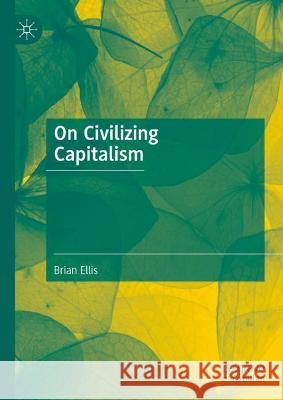On Civilizing Capitalism » książka
On Civilizing Capitalism
ISBN-13: 9783031296802 / Angielski
On Civilizing Capitalism
ISBN-13: 9783031296802 / Angielski
(netto: 497,21 VAT: 5%)
Najniższa cena z 30 dni: 501,19
ok. 16-18 dni roboczych.
Darmowa dostawa!
This book shows how modern political, economic and moral theory, including our ideas of liberty and individualism, are trapped in 17th century notions of intuitive reasoning and not informed by modern scientific understanding. Brian Ellis starts with a re-appraisal of the founding of the United Nations and the political and economic policies of the post-war reconstruction period. He then shows how this period, despite its many faults, embodied a philosophy more closely embedded in scientific realism than dominant theories of either left or right today. He goes on to develop this philosophy, meticulously, demolishing theories of Rawls, Nozick and others along the way. The result is a philosophy that investigates how a society actually works, supports evidence-based economics and can better enable human beings to flourish. It is a philosophy that can also accommodate the historical differences between societies and their different, but parallel, development strategies over time.
This book shows how modern political, economic and moral theory, including our ideas of liberty and individualism, are trapped in 17th century notions of intuitive reasoning and not informed by modern scientific understanding. Brian Ellis starts with a re-appraisal of the founding of the United Nations and the political and economic policies of the post-war reconstruction period. He then shows how this period, despite its many faults, embodied a philosophy more closely embedded in scientific realism than dominant theories of either left or right today. He goes on to develop this philosophy, meticulously, demolishing theories of Rawls, Nozick and others along the way. The result is a philosophy that investigates how a society actually works, supports evidence-based economics and can better enable human beings to flourish. It is a philosophy that can also accommodate the historical differences between societies and their different, but parallel, development strategies over time.











